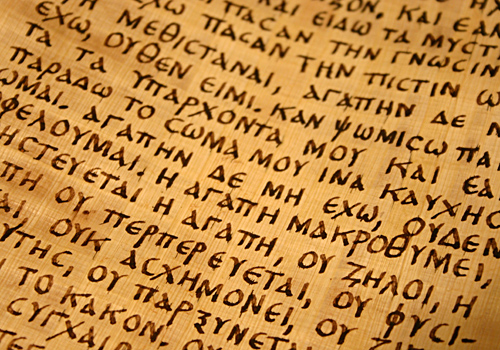Initial Progress Learning Biblical Languages – Good and Bad News
The good news is that I got two high distinctions for first semester, one for Greek and one for Hebrew. Considering that the languages at Morling (and I get the impression in general) are regarded as so difficult, compared to most other subjects, that only about one person every three years attempts to learn both at once — I feel that's a decent "claim to fame" that I must have some legitimate clue about how to learn the biblical languages. Also I feel like it gives me some amount of cred to be writing about them online, even though I'm only still very much a beginner at them.
The bad news is that in the Greek exam I did yesterday, which was worth 10% of the 2nd semester Greek subject, I did so badly I'll be lucky to even pass it.
So what went wrong?
There was a combination of things, including ongoing health problems, and unexpected family things that came up. But they all add up to the main reason, which is that I didn't spend enough time studying for it.
What's On This Page?
On this page, which I'll add to gradually, I'll describe (and show photos of) some of the things that worked well and helped a lot — and those that didn't — over my first semester of Biblical Greek and Hebrew. And also describe how the start of second semester has been. And some ideas I've got to try to up my game a bit more with how well I'm learning them.
Many Christians really struggle with learning these languages, so I feel that all the advice you can get is a good thing — and you can try out different ideas, and see what works for you, and what doesn't.
..... to be continued ..... (I'm going to do some actual study now.)
Cover image by Mikhail Leonov / Shutterstock. Rock arches of Blue caves from a sightseeing boat in the blue water of the Ionian Sea, Island Zakynthos, Greece. Trip from Agios Nikolaos port. Many early Christian missionaries, including the Apostle Paul, travelled extensively in the Mediterranean Sea.








